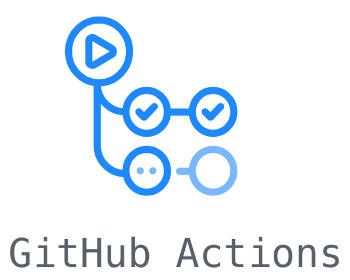-
sceptre: Multiple instances of a template
2 min read

When provisioning cloud resources using sceptre we can endup with plenty of errors that we'll have to track down:
$ sceptre create example Do you want to create 'example' [y/N]: y [2023-01-26 05:18:31] - example/s3 - Creating Stack [2023-01-26 05:18:33] - example/s3 s3 AWS::CloudFormation::Stack CREATE_IN_PROGRESS User Initiated [2023-01-26 05:18:37] - example/s3 Bucket AWS::ServiceCatalog::CloudFormationProvisionedProduct CREATE_IN_PROGRESS [2023-01-26 05:18:41] - example/s3 Bucket AWS::ServiceCatalog::CloudFormationProvisionedProduct CREATE_IN_PROGRESS Resource creation Initiated [2023-01-26 05:20:15] - example/s3 Bucket AWS::ServiceCatalog::CloudFormationProvisionedProduct CREATE_COMPLETE [2023-01-26 05:20:20] - example/s3 s3 AWS::CloudFormation::Stack CREATE_COMPLETE [2023-01-26 05:20:24] - example/demo-policy - Creating Stack [2023-01-26 05:20:25] - example/demo-policy demo-policy AWS::CloudFormation::Stack CREATE_IN_PROGRESS User Initiated [2023-01-26 05:20:29] - example/demo-policy IAMPolicy AWS::ServiceCatalog::CloudFormationProvisionedProduct CREATE_IN_PROGRESS [2023-01-26 05:20:33] - example/demo-policy IAMPolicy AWS::ServiceCatalog::CloudFormationProvisionedProduct CREATE_FAILED Resource handler returned message: "Invalid request provided: AWS::ServiceCatalog::CloudFormationProvisionedProduct" (RequestToken: 4580f5a3-bec2-72cc-5f9f-abad3792e57a, HandlerErrorCode: InvalidRequest) [2023-01-26 09:20:33] - example/demo-policy demo-policy AWS::CloudFormation::Stack ROLLBACK_IN_PROGRESS The following resource(s) failed to create: [IAMPolicy]. Rollback requested by user. [2023-01-26 05:23:12] - example/demo-policy IAMPolicy AWS::ServiceCatalog::CloudFormationProvisionedProduct DELETE_COMPLETE [2023-01-26 05:23:12] - example/demo-policy demo-policy AWS::CloudFormation::Stack ROLLBACK_COMPLETE16/03/2023
Read more... -
GitHub Actions: Scheduled Runs
2 min read

GitHub Actions is a powerful automation tool that allows you to automate various tasks and processes, usually triggered by some change in the source repository. Using scheduled runs we are going to be able to schedule runs as well.
14/03/2023
Read more... -
Prometheus: Add label to a metric
1 min read

In Prometheus, to be able to add a label to the metrics retrieved by a particular job we can use relabel_configs.
08/03/2023
Read more... -
Kustomize: Disabling hashed ConfigMap when using configMapGenerator
2 min read

When we try to use configMapGenerator to generate a
ConfigMapcontaining some files like this:configMapGenerator: - name: config-files behavior: create files: - files/file1.txt - files/file2.txtBy default, it is going to append a hash to it:
$ kubectl get configmap NAME DATA AGE config-files-m55tkfhh8f 2 45dIf we need to access this
ConfigMapby name we might want to remove the hash.07/03/2023
Read more... -
Optional Secrets as Volumes or Environment variables
3 min read

Secretscontain sensitive data such as passwords, tokens, and certificates. They can be used by Kubernetes pods to authenticate with other systems. However, some of them might be optional so we'll want to be able to create the Pod without having to use some template engine to handle whether the secret is present or not.06/03/2023
Read more... -
sceptre: Defining an explicit dependency
1 min read

When we are using the output of one stack as a parameter for another one we are defining an implicit dependency: sceptre is going to create one first, get it's output and then create the other one. If we still need to create some stack after another but we are not using any output as parameter, we can still define an explicit dependency.
01/03/2023
Read more...